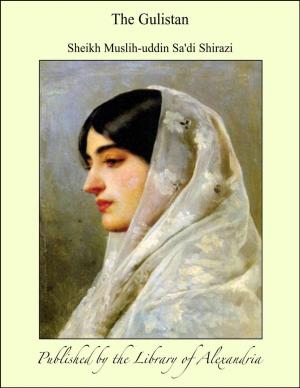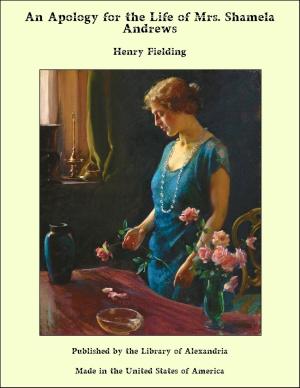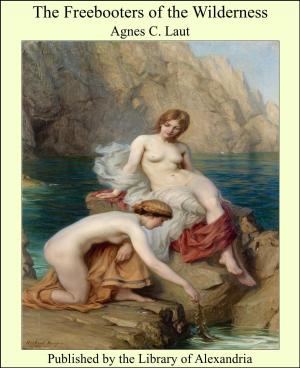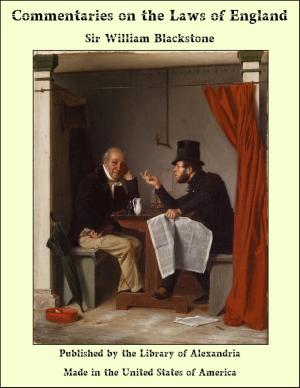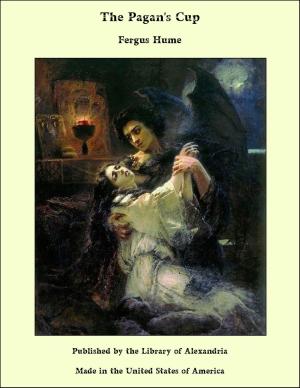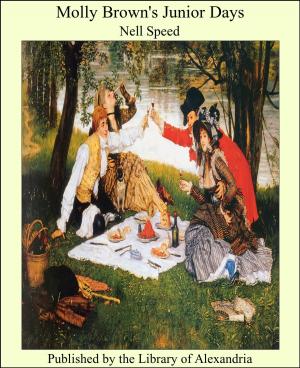The Americans as They Are: Described in a Tour Through the Valley of the Mississippi
Nonfiction, Religion & Spirituality, New Age, History, Fiction & Literature| Author: | Charles Sealsfield | ISBN: | 9781465597656 |
| Publisher: | Library of Alexandria | Publication: | March 8, 2015 |
| Imprint: | Language: | English |
| Author: | Charles Sealsfield |
| ISBN: | 9781465597656 |
| Publisher: | Library of Alexandria |
| Publication: | March 8, 2015 |
| Imprint: | |
| Language: | English |
Upwards of half a century has now elapsed since the independence of the United States became firmly established. During this period two great questions have been solved, exposing the fallacies of human calculations, which anticipated only present anarchy and ultimate dissolution as the fate of the new Republics. The possibility of a people governing themselves, and being prosperous and happy, time, the sure ordeal of all projects, has at length demonstrated. Their political infancy is over, they are approaching towards manhood, and fully sensible of their strength, their first magistrate has ventured to utter those important words contained in his address of 1820: that “notwithstanding their neutrality, they would consider any attempt on the part of the European Powers, to extend their system to any portion of their hemisphere, as dangerous to their peace and safety; and that they could not admit of any projects of colonization on the part of Europe.” Thus, for the first time, they have asserted their right of taking a part DE FACTO in the great transactions of European Powers, and pronounced their declaration in a tone, which has certainly contributed to the abandonment of those intentions which were fast ripening into execution. The important influence of American liberty throughout the civilised world, has been already apparent; and more especially in France, in the South American revolutions, and in the commotions in Spain, Portugal, Naples, and Piedmont. These owe their origin, not to any instigation on the part of the United States, but to the influence of their example in raising the standard of freedom, and more than all, to the success which crowned their efforts. Great has been on the other hand, the influence of European politics on the North American nation. A party, existing since the revolution, and extending its ramifications over the whole United States, is now growing into importance, and guided by the principles of European diplomacy, is rooting itself deeper and deeper, drawing within its ranks the wealthy, the enlightened, the dissatisfied; thus adding every day to its strength. We see, in short, the principle of monarchy developing itself in the United States, and though it is not attempted to establish it by means of a revolution, which would infallibly fail, there is a design to bring it about by that cunning, cautious, and I may add, American way, which must eventually succeed; unless the spirit of freedom be sufficiently powerful to neutralize the subtle poison in its progress, or to triumph over its revolutionary results. There have occurred many changes in the United States within the last ten years. The present rulers have succeeded in so amalgamating opinions, that whatever may be said to the contrary, only two parties are now in existence. These are the monarchists, who would become governors, and the republicans, who would not be governed.
Upwards of half a century has now elapsed since the independence of the United States became firmly established. During this period two great questions have been solved, exposing the fallacies of human calculations, which anticipated only present anarchy and ultimate dissolution as the fate of the new Republics. The possibility of a people governing themselves, and being prosperous and happy, time, the sure ordeal of all projects, has at length demonstrated. Their political infancy is over, they are approaching towards manhood, and fully sensible of their strength, their first magistrate has ventured to utter those important words contained in his address of 1820: that “notwithstanding their neutrality, they would consider any attempt on the part of the European Powers, to extend their system to any portion of their hemisphere, as dangerous to their peace and safety; and that they could not admit of any projects of colonization on the part of Europe.” Thus, for the first time, they have asserted their right of taking a part DE FACTO in the great transactions of European Powers, and pronounced their declaration in a tone, which has certainly contributed to the abandonment of those intentions which were fast ripening into execution. The important influence of American liberty throughout the civilised world, has been already apparent; and more especially in France, in the South American revolutions, and in the commotions in Spain, Portugal, Naples, and Piedmont. These owe their origin, not to any instigation on the part of the United States, but to the influence of their example in raising the standard of freedom, and more than all, to the success which crowned their efforts. Great has been on the other hand, the influence of European politics on the North American nation. A party, existing since the revolution, and extending its ramifications over the whole United States, is now growing into importance, and guided by the principles of European diplomacy, is rooting itself deeper and deeper, drawing within its ranks the wealthy, the enlightened, the dissatisfied; thus adding every day to its strength. We see, in short, the principle of monarchy developing itself in the United States, and though it is not attempted to establish it by means of a revolution, which would infallibly fail, there is a design to bring it about by that cunning, cautious, and I may add, American way, which must eventually succeed; unless the spirit of freedom be sufficiently powerful to neutralize the subtle poison in its progress, or to triumph over its revolutionary results. There have occurred many changes in the United States within the last ten years. The present rulers have succeeded in so amalgamating opinions, that whatever may be said to the contrary, only two parties are now in existence. These are the monarchists, who would become governors, and the republicans, who would not be governed.

